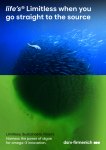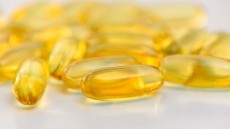Sales fall for Martek as customers use up stock
results, with a steep 17 percent drop in sales. But although
operating income also took a dive, the poor quarter is not a sign
of waning interest in nutritional oils. Rather, customers are using
up a surfeit of stock they have amassed during a period of supply
shortfall.
Product sales fell to $35.9 million in the three months ended July 31 2005, compared to $47.3 million in the prior year period. Total revenues, including contract manufacturing sales, were $39.5 million.
In this year's quarter Martek's operating loss was $0.58 million - whereas income for the same period of last year reached $4.77 million.
"As predicted, we believe customers have largely worked off their inventory which reduced the third quarter's sales and earnings. As these inventories are depleted, I expect a return to sales growth and profitability," said CEO Pete Linsert.
Martek's own inventory as at July 31 2005 was more than double what it was on October 31 2004 - $72,7 million compared to $30.4 million.
Martek adjusted its expected earnings for the fiscal year in April, saying that it had become aware of an inventory build up of ARA (arachidonic acid). The new estimates predicted revenues of between $38 and $42 million for Q3 2005, and between $61 and $76 million for 4Q.
Director of finance Kevin Connelly told NutraIngredients-USA.com that the company believed customers to have stockpiled between two and four months' supply.
The latest results statement seeks to explain the build up as "a response, in part, to the inability of Martek, and of its third party suppliers, to keep up with demand in fiscal 2004 and the first part of fiscal 2005".
But shareholders who have launched a class action lawsuit against the company allege that it flooded companies with inventory in order to meet financial targets.
Martek sources up to 90 percent of its ARA, used mainly in infant formulas, from DSM. Supply problems have led the company to resort to delivery through airfreight in order to meet demand, and putting an allocation system in place for its biggest customers.
It says that it has now resolved the issues, having completed the expansion of its Kingstree fermentation and downstream processing facility. Start-up costs related to internal ARA production made up the lion's share of $1.2 million operating expenses in Q3.
DSM has also completed the expansion of its plant in Belvidere, New Jersey, and ramped up its output.
According to the company, Martek and DSM's combined production capabilities mean it has the capacity to " fulfill the expected needs of the infant formula market and to position Martek to meet the potential short- to mid-term demand estimated for food and beverage DHA products."
It added that it has now managed to amass sufficient finished goods inventory, cease air freighting and remove limits on customer orders.
Martek counts major players Mead Johnson, Wyeth, Abbott Laboratories and Nestle amongst its ARA for infant formula licensees. Last month it announced two new licenses: one with Pasteur Milk Co covering South Korea and one with Semper covering Finland, Sweden, Latvia and Lithuania.
Beyond ARA, Martek has also been investing in other parts of its business. Research and development expenses increased by 8 percent in the latest quarter to $5.3 million, due to new clinical studies on DHA and the development of new food and beverage applications.











